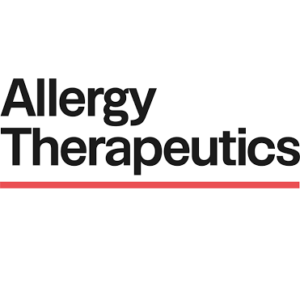Allergy Therapeutics plc (LON:AGY), the fully integrated specialty pharmaceutical group specialising in allergy vaccines, today announces that two preclinical studies carried out through its Bencard Adjuvant Systems division have been published in peer-review journals.
The two papers report that the novel depot adjuvant behind Allergy Therapeutics’ successful allergy immunotherapy Pollinex® platform, microcrystalline tyrosine (MCT), both alone and in an adjuvant system, have broad applications and elicit high, sustained antibody titres demonstrating enhanced protective efficacy compared to conventional adjuvants including aluminium.
Commenting on the recent publications, Manuel Llobet, Chief Executive Officer of Allergy Therapeutics, said: “These publications underpin the strategy for our Bencard Adjuvant Systems division, which focuses on extending the use of MCT® and VLP in further developing vaccines against unmet needs, and new and emerging infectious diseases that require an effective depot adjuvant.“
The two publications are:
Comparison of a novel microcrystalline tyrosine adjuvant with aluminium hydroxide for enhancing vaccination against seasonal influenza: Heath et al., BMC Infectious Diseases (2017) 17:232
The paper authored by principal scientist Dr Matthew D. Heath & collaborators from Public Health England discusses the use of MCT® in a seasonal influenza vaccine model. The use of MCT® displayed higher binding affinity compared to the conventional depot adjuvant, aluminium, demonstrating the suitability of MCT® as a depot adjuvant in applications outside of allergy immunotherapy. MCT® elicited an immune response (HAI titre) indicative of protection in a pre-clinical model. The data provide evidence of the suitability of using the MCT®platform in an influenza model and address some of the issues associated with weakly stimulating vaccine targets/antigens.
Virus-like particle (VLP) plus microcrystalline tyrosine (MCT) adjuvants enhance vaccine efficacy improving T and B cell immunogenicity and protection against plasmodium berghei/vivax:Cabral-Miranda et al., Vaccines (2017) 5;10.
This publication authored with The Jenner Institute at the University of Oxford has been published investigating the use of adjuvants MCT and adjuvant system MCT+VLP (AdSys-VCT) in malaria. In a pre-clinical model, malaria antigens conjugated to VLP and formulated in MCT induced highest antibody responses, highest T-cell responses, and offered the best protection against malaria compared with antigens formulated with aluminium. Moreover, the study demonstrated that MCT® alone is able to elicit high and sustained IgG antibody responses that are specific and protective against P.vivax (malaria).


